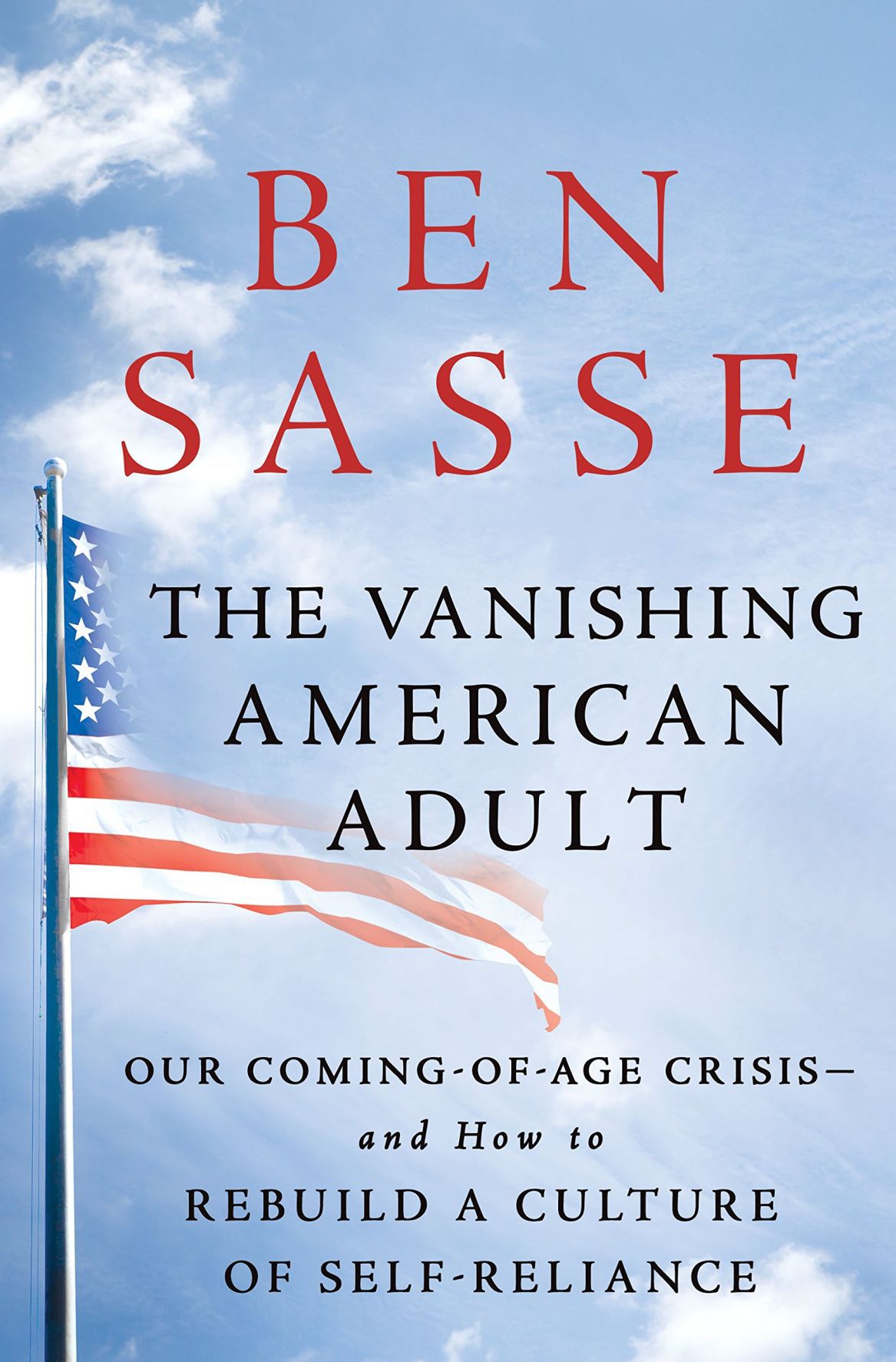It seemed like such a small, insignificant request. My cousin wanted ice in his tap water. He probably wasn’t older than 10, and I was maybe 13. But our grandmother didn’t see his request as small. I don’t remember her exact words. I do remember they went something like this: “What kind of coddled child needs ice in his water?”
My grandmother is a child of the Great Depression. She entered adulthood as World War II concluded. She’s traveled around the world but never lived outside the same rural county in South Dakota. Until the last few years she lived on the farm where my grandfather, great-grandfather, uncles, and father earned a middle-class living for our family. Growing up I toiled alongside them; or, at least, they tolerated my feeble attempts.
But on this memorable occasion my cousin was visiting with his family from out of state. And my grandmother believed she needed to teach us a lesson. She wanted both of us to know the difference between need and want, between necessity and luxury. She wanted us to realize how good we had it. And she wanted us to appreciate the painful labor that made such simple treats as ice water an everyday indulgence.
“We seem collectively blind to the irony that the generation coming of age has begun life with far too few problems,” Ben Sasse writes in a new book my farm-reared family would love. Sasse, the junior U.S. senator from Nebraska, argues in The Vanishing American Adult: Our Coming-of-Age Crisis—and How to Rebuild a Culture of Self-Reliance that the economic disruption caused by factors such as globalization and technology demands innovation and grit. Instead, we’re raising children who expect lives of pleasure and ease.
The kids are not okay. And neither is America.
Cultural Catechesis
Before his 2014 election to the Senate, Sasse served as president of Midland University in his hometown of Fremont, Nebraska. Sasse wrestled at Harvard, studied at Oxford, and earned his PhD in American history from Yale. But he’s much more fond of recounting rites of passage from his Midwestern childhood, such as detasseling corn and walking beans. Not even 40 when he took the Midland job, Sasse was dismayed to learn that students admitted they most looked forward to skipping class and partying—not learning and exploring. He doesn’t think this problem is unique to his hometown.
“Hard work produces wealth, which then produces leisure,” Sasse writes. “Over an individual lifetime, this seems both fair and good. But across generations, it leads people who know only the leisure and not the work or character that created it.”
If Job were living today, maybe God wouldn’t take everything away from him in order to test his fidelity. Maybe Job would win the lottery.
He proposes, then, that we engage in a nationwide project of cultural catechesis, so our children learn that good work—not the absence of work—will lead to a fulfilled life. It’s not common to hear a conservative Republican politician lament the problems created by wealth. But Sasse believes “affluenza” has crippled an entire American generation. Back when ice water was a luxury, work formed virtuous character. It’s not like people worked just for the fun of it. Their very lives depended on it. And they depended on one another in communities of shared values. But if you want for nothing, and you need no one else, how will you ever cultivate a habit of gratitude? How will you develop humility, so you can serve others and the common good?
If Job were living today, maybe God wouldn’t take everything away from him in order to test his fidelity. Maybe Job would win the lottery.
Renewed Vision
Sasse supports his perspective on work and virtue from a wide variety of sources, including Genesis and the Puritans. He argues as a Reformed Christian, but he speaks to all Americans. He sees beliefs recovered in the Reformation as central to American identity and formation.

The Vanishing American Adult: Our Coming-of-Age Crisis—and How to Rebuild a Culture of Self-Reliance
Ben Sasse
The Vanishing American Adult: Our Coming-of-Age Crisis—and How to Rebuild a Culture of Self-Reliance
Ben Sasse
“Americans believe in work,” Sasse writes in a passage informed by Martin Luther. “There is not dignified versus undignified work, nor important versus unimportant work; there is only useful versus useless work. And if your work benefits a neighbor, it is useful and therefore dignified, and it can be used as an occasion to glorify.”
Driven by theology, experience, and Tocqueville-influenced localism, Sasse sees an important role for local churches in this cultural crisis. I would even argue they’re the best way to implement his “active program” for the problem—flee age segregation (ch. 4), embrace work pain (ch. 5), consume less (ch. 6), travel to see (ch. 7), build a bookshelf (ch. 8). They defy age segregation, so they can pass on wisdom learned through the generations. They promote a global perspective through missionary work, and offer short-term trips to see and serve the world. They urge us to consume less by reminding us that Jesus warned, “Do not lay up for yourselves treasures on earth, where moth and rust destroy and where thieves break in and steal” (Matt. 6:19).
Sasse may have America in view, but I have hope that national renewal could start with the church setting an example through the power of the gospel.
Clear Commitments
During the last campaign Sasse emerged as a vocal critic of President Trump from within his own party. Sasse makes clear this book is no policy manual or political treatise. But you can still pick up on his disaffection with both parties. At one point he admits he’s concerned about the trend that “in times of economic disruption, we invariably see the rise of people who offer quick fixes, nativist campaigns, and more centralized power as a way out.” The problem, according to Sasse, extends to the very solvency of our nation.
“In times of rapid economic and cultural change, democracies become vulnerable,” he warns, “because people with easy answers prey on our fears and our anger at losing out.”
The book does, though, suggest some clear political commitments that mark him as a conservative. He criticizes the goals and performance of Dewey-derived public education, and especially proposals that suggest more money and more centralization would solve its problems. He and his wife, Melissa, homeschool their three children. Sasse writes:
Too much formalized schooling inevitably crowds out communities of the heart and soul, voluntarism, flexibility and choice, cross-cultural experience, exertion, success and failure, and time—essentially everything for becoming a fully formed adult, an empathetic citizen, and a work-learner flexible enough to navigate the accelerated pace of job expiration and change in the new economy.
In part due to these problems with education, it’s hard to argue with Sasse that we have a national catechesis problem. Millennials know little of American history and values. Look no further than the worrisome decline in their support for the First Amendment right to free speech.
However, I would have liked to hear more from Sasse on how we can appreciate the American idea while wrestling with the less celebratory aspects of American history, especially related to racial injustice. What would it take for another Lincoln or King to arise in our day and infuse our national project with a renewed vision for all peoples, whatever their race? It won’t hurt if that visionary would study Sasse’s catechetical canon (ch. 8), which recommends works from Machen and King; Luther and Calvin and Anselm; Douglass and Baldwin and Ellison.
Good Life
I rarely open up my freezer to grab some ice without thinking of my grandmother. I don’t think ice water is a sign of decadence. She didn’t know how I would wilt without it under the Alabama sun! But in that moment and countless others, she taught me to rejoice and be glad in the day the Lord has made (Ps. 118:24).
“Our goal is for our kids to be intentional about everything they do—to reject passivity and mindless consumption and to embrace an ethos of action, of productivity, of meaningful work, and genuinely lifelong learning,” Sasse writes. “In other words, we want them to find the good life.”
Thank you for showing me the way, Grandma.

































